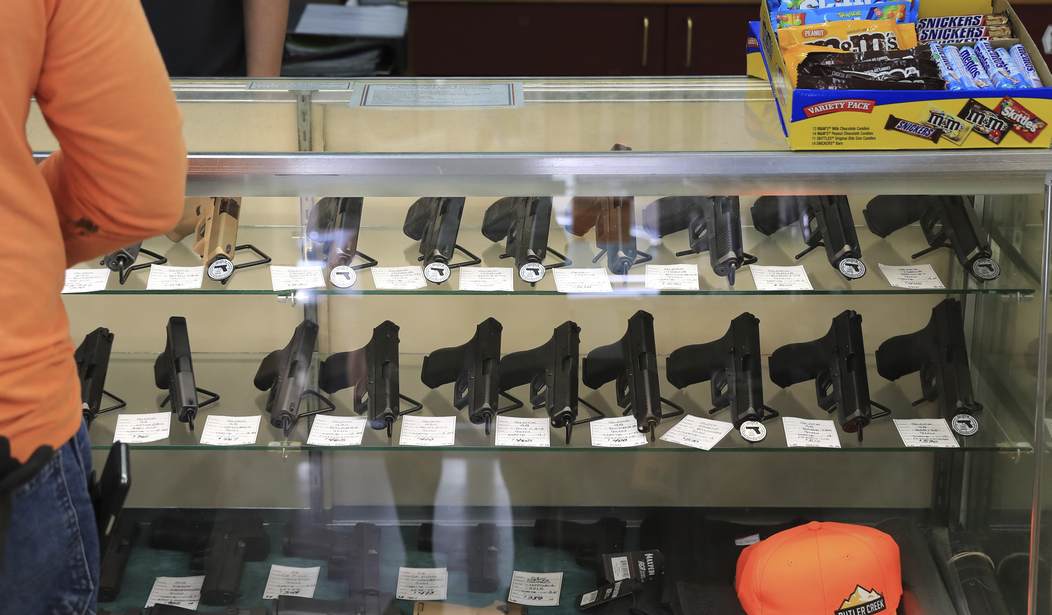A U.S. District Court judge and a three-judge panel of the Eleventh Circuit Court of Appeals have both upheld Florida's ban on gun sales to adults younger than 21, but an en banc panel on the appellate court appeared to be pretty skeptical of the prohibition during oral arguments on Tuesday.
The ban, which was put in place after the murders at Marjory Stoneman Douglas High School in Parkland, Florida in 2018, doesn't prohibit under-21s from possessing a firearm or even acquiring one from a friend or family member, but it does bar young adults from lawfully purchasing a firearm at retail.
Attorneys for the state of Florida contend that there's a national tradition of restricting access to guns among young adults, but attorney John Parker Sweeney, who's representing the NRA in its challenge to the Florida statute, argued that prohibiting gun sales to adults under the age of 21 wasn't commonplace at the time of the Founding.
Judge Robin Rosenbaum was among the members of the court who pressed Sweeney on the cut-off age for purchasing guns.
"Here's the problem with that. The problem is that the common law at that time gave no rights to anyone under 21, including the ability, the practical ability, to purchase a firearm," Rosenbaum said, adding that people under 21 largely worked for their parents on farms, did not have their own sources of income and were unable to enter into contracts to purchase guns on credit.
"They couldn't sue, they couldn't do a lot of things," Rosenbaum said.
In addition, states at the time made parents responsible for purchasing firearms for people under age 21 who were part of the militia or the military, Rosenbaum said.
"So how does that establish 18 as the number?" she asked.
"Anyone with cash could go in" and purchase a firearm at the time, including people under 21, Sweeney said.
"I'm not denying that the common law imposed limitations that could impact the ability to purchase, but it's not a prohibition on the purchase of firearms," Sweeney said.
Even if there were statutes in place around 1791 that restricted access to firearms for those under the age of 21, as Rosenbaum notes, the laws back then essentially treated anyone under the age of 21 as a minor. Today, however, the age of majority is considered 18, so why shouldn't that apply to our Second Amendment rights?
"One of the issues I have is, one of the arguments that you make is that the ban, quote, 'ensures that parents continue to play a key role in supervising and facilitating 18-to-20 year olds' access to firearms.' The issue is, though, an 18-year-old in the state of Florida or anywhere in any of the 50 states is a legal adult, and parents have no role or responsibility," Judge Barbara Lagoa, a former Florida Supreme Court justice, said.
Judge Robert Luck followed up on the line of questioning, noting that the "justification" for treating 18-to-20-year-olds at the time of the founding was that parents had an "obligation" to take care of children under age 21.
"Florida now has cut 18-to 21-year-olds loose and said, 'You're on your own, your parents have no obligation.' But then Florida is trying to treat them as children just for firearm purposes, and that's where it seems like there's a mismatch between the how and the why of these older laws and the how and the why of Florida's law," Luck, who also served on the Florida Supreme Court, said.
Florida Deputy Solicitor General Christopher Baum didn't have much of an answer to Lagoa and Luck's line of questioning. He essentially retreated to a position of "they treated 20-year-olds as children back then so it should be okay to treat them like kids today", at least when it comes to gun purchases.
But if an 18-year-old can rent an apartment and live there by herself, why should she need her parents' permission to acquire a firearm to protect herself in her new place? That doesn't make sense, and Florida's restriction puts those young adults at greater risk of harm by making it exceedingly difficult to exercise their right to keep and bear arms.
In court briefs, Florida's attorneys have also argued that young adults, as a class, are more prone to commit violent crimes than older Americans, and can therefore be singled out for additional restrictions on their Second Amendment rights. While it's true that violent crime rates are typically highest among the youngest adult demographics, the vast majority of under-21s will never commit a crime of violence. Florida's law is hardly narrowly tailored to achieve a public safety objective. It paints an entire class of citizens as dangerous and prohibits them from utilizing the most common way of acquiring a firearm; a commercial retail sale.
A number of age-based restrictions on our Second Amendment rights are being challenged around the country, including carry bans for under-21s and the federal prohibition on handgun sales for 18, 19, and 20-year-olds. There's no way these age-based gun control laws are constitutionally tenable when we now treat 18-year-olds as adults in the eyes of the law, and the Eleventh Circuit should reverse the lower courts' decisions and rule in favor of the NRA and young adults across the state of Florida as quickly as possible.









Join the conversation as a VIP Member